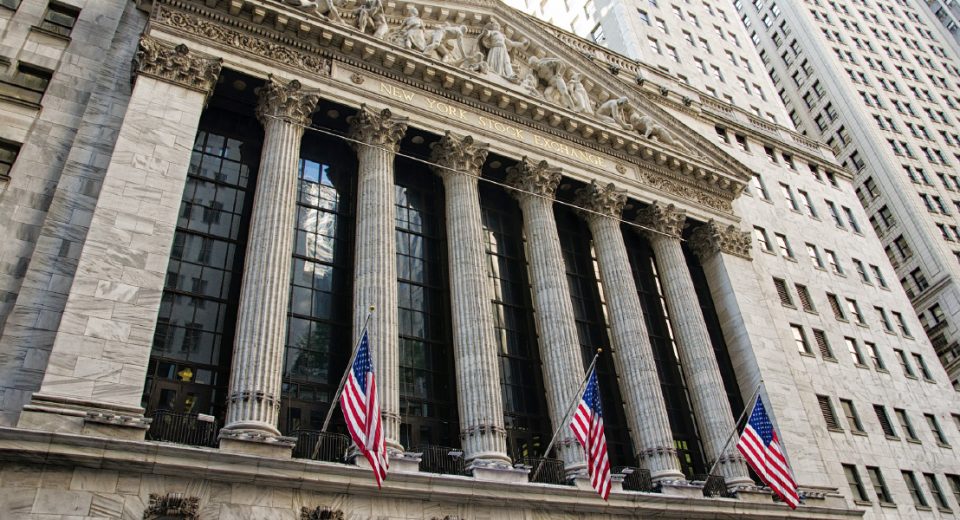Facebook has Launched Its Own Cryptocurrency: Here’s What We Know

In a major development for the blockchain industry, social media giant, Facebook, launched its own cryptocurrency, Libra, in June 2019. Libra is being touted as the digital currency that will shake up the global banking system by empowering the platform’s 2.38 billion monthly active users to make financial transactions using it. The project also hopes to provide financial inclusion to millions of people who still remain outside the purview of the traditional banking systems.
Libra is actually the creation of a non-profit organisation, Libra Association, based in Switzerland, which includes 28 major companies from across the world. Some big names are involved in this project, including MasterCard, PayPal, Visa, Spotify, eBay and Uber, who will help build, fund and govern the system. This suggests that Facebook won’t be alone in governing the Libra blockchain, but will share voting rights with other companies within Libra Association.
Creating the “Internet of Money”
Although global internet connectivity and a range of low-cost smartphones have made it easier to access information and stay connected, the benefits have not been passed on to the financial domain. Over 1.7 billion adults still remain outside the traditional banking system, around the globe. Millions of people, despite low incomes, pay exorbitant fees for basic financial transactions. Many lack the necessary documentation and funds to even open a bank account. The Libra Project believes that blockchain and cryptocurrencies can bring decentralisation and easy accessibility into the system.
But, existing blockchains lack scalability and cryptocurrencies have suffered from huge volatility, which has continued to hinder mass adoption. Bypassing regulations is not a solution either.
The Libra Blockchain has been designed to provide a secure, scalable and reliable underlying technology for its native currency, Libra. It has been created using Move, a new programming language, which can actually prevent assets from being cloned, while facilitating automatic proof that transactions of a certain nature have been fulfilled. It also makes it easier for developers to create codes, so that there are lesser chances of unintended bugs and security incidents.
The blockchain will be open to anyone, consumers, developers and businesses, to create products on top of it. It intends to not only help in creating a new global currency, but also help with future innovation in financial services.
How Will Libra Work?
The goal is to create a stable cryptocurrency, which has all the necessary properties of being adopted as a global currency, such as low inflation, stability, wide adoption and fungibility. Libra will be backed by a reserve of real assets, the Libra Reserve, and a huge network of exchanges that it will trade on. The asset reserves include low volatility instruments like bank deposits and short-term government securities, denoted in stable currencies like the US Dollar, Euro and Pound Sterling. It is the interest on these assets that will help fund the costs of the system, to ensure low transaction fees for users. Investors who have provided capital to the Libra Association, to fuel the ecosystem, will be rewarded with dividends.
Anyone who holds Libra will be able to convert it into local currency, based on the prevailing exchange rate. Unlike existing cryptocurrencies that lack intrinsic value, and hence see their prices fluctuating wildly, Libra’s value is expected to remain stable over time. Millions will be able to send funds across borders easily, securely and at low cost.
How Will People Use it?
Apart from sending and receiving money at a low cost, Facebook will empower people to do a lot more. The company will launch a crypto wallet called, Calibra, alongside the currency, which will be built into WhatsApp, Facebook Messenger and Facebook’s own app. Users can buy and sell Libra pseudonymously online or at local exchange points. The idea is to make financial transactions as easy as sending a message on these apps. Moreover, even non-Facebook users can access the Calibra wallet.
It isn’t only Facebook that is looking at building such third-party apps. Members of the Libra Association, like PayPal, will provide these wallets too. Merchants and developers will be rewarded for allowing Libra on their payment systems. For instance, users could get rewarded with discounts from eBay, Uber and Spotify, for making payments in Libra.
Privacy Issues Can be a Deterrent to Adoption
Everyone knows that Facebook is in the crosshairs of multiple privacy violations, which means that the project is grabbing the attention of financial regulators and government agencies around the world. US lawmakers have expressed concerns that the world’s biggest social media company hosts private data of billions of users across the globe but has repeatedly shown a disregard for careful use of this data. US and UK officials have contacted the company repeatedly, asking Mark Zuckerberg to answer queries related to privacy and regulations. In May 2019, Zuckerberg met the Governors of the Bank of England and the US Treasury to discuss the payment system.
Facebook claims that it will not bypass current regulations, but rather innovate on them. Libra will use the same KYC protocols and anti-fraud processes that banks and credit institutions use. Facebook has also promised to refund users whose accounts are hacked or stolen.
A New Blockchain Marvel or Just a Profit-Making Initiative
Libra will officially roll-out in early 2020, and Facebook will have a number of regulatory hurdles to cross before its launch. But, cryptocurrency advocates remain optimistic that the entry of such a large company into the blockchain industry will boost adoption rates.
But, it isn’t as though Facebook won’t be making money out of this venture. The social media company will definitely be using Libra to get more people to make purchases from ads on its social media pages. This will foster greater sales.
Libra is backed by powerful and familiar corporations, which might make it the first Bitcoin-like currency to gain mass appeal, especially since Bitcoin still remains shrouded with fraud concerns and suffers from huge volatility. Libra, on the other hand, will be backed up by a basket of major currencies, like the US Dollar, Euro and Yen.
It remains to be seen how much the coin gets adopted and traded, and whether it gains significant market capitalisation. It also isn’t clear whether the vast unbanked population will actually get to use the service or not. The conclusive thing is that blockchain continues to be used in creative applications for the benefit of mankind.
Reference Links
- https://libra.org/en-US/white-paper/#what-is-next-for-libra
- https://www.cbsnews.com/news/facebook-cryptocurrency-libra-a-digital-currency-for-the-social-network/
- https://www.theguardian.com/technology/2019/jun/23/facebook-libra-cryptocurrency-poses-risks-to-global-banking
- https://techcrunch.com/2019/06/18/facebook-libra/




